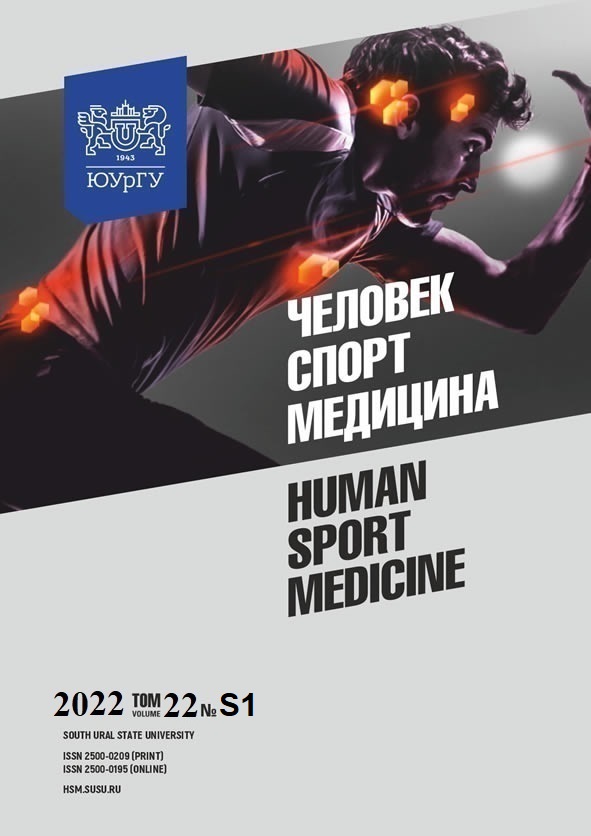THE EFFECT OF RESISTANCE EXERCISE ON PAIN INDICATORS FROM THE SF-36 QUESTIONNAIRE
Abstract
Aim. The paper aims to develop a comprehensive methodology for the use of resistance exercises in young people with kypholordotic posture. Materials and methods. The study involved two groups of males with low levels of physical activity and postural disorders (kypholordotic type). The experimental group consisted of 37 people (average age 27.7 ± 3.4 years); the control group consisted of 35 people (average age 27.9 ± 3.0 years). The experimental group performed resistance exercises, the control group performed Pilates exercises following the method of Kim Emery. Results. The optimal duration of classes for persons with kypholordotic posture is 16 weeks, which are divided into 2 stages: adaptation and correction (a load of 50–60% of the repeated maximum, 12–14 reps). In the experimental group, the pain index improved more (28.6 scores) than in the control group (18.6 scores). Conclusion. Kypholordotic posture is often associated with sedentary lifestyle and is a functional disorder of the musculoskeletal system. The data obtained show statistically significant differences in the effectiveness of our resistance exercise program compared with stretching and Pilates exercises following the method of Kim Emery.
References
References on translit
Copyright (c) 2022 Human. Sport. Medicine

This work is licensed under a Creative Commons Attribution-NonCommercial-NoDerivatives 4.0 International License.















